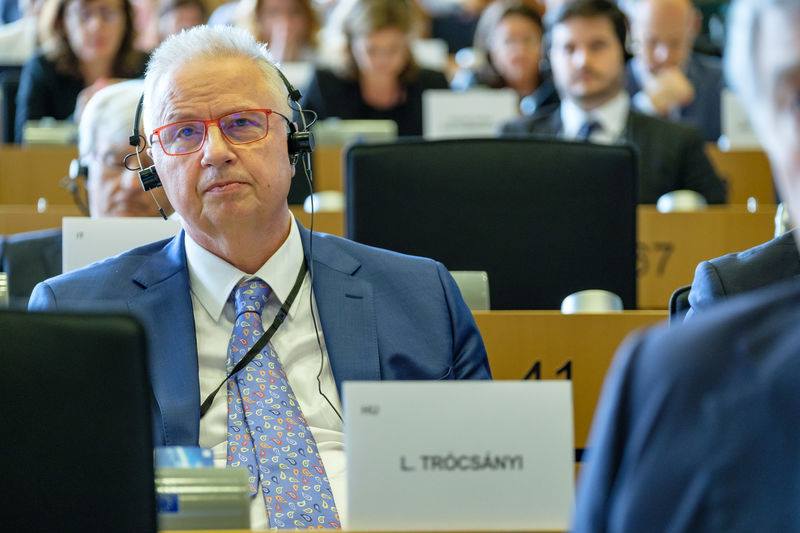
The foundations of the democratic European Union today are at risk of being overtaken by a federal union, created without legitimacy and against the will of member states and their citizens, Fidesz MEP László Trócsányi said in an article published in the daily Magyar Nemzet on Saturday.
Trócsányi noted a recent open letter in the Frankfurter Allgemeine Zeitung signed by 30 German constitutional judges calling on the European Commission to abandon an infringement procedure against Germany. The procedure was launched in response to a decision by the German Constitutional Court last year, saying that national constitutional courts should retain the right to review EU measures to protect their constitutional identity. Otherwise, the EU would have free hand in gradually stripping member states of their competencies, he said.
“In the end, this could lead to the emergence of a federal European Union lacking legitimacy, against the will of member states and their citizens. If the EC refuses to drop the infringement procedure [against Germany], the treaties, the rule of law and European democracy, and … European integration will be put at risk,” Trócsányi said.
Related article
Fidesz MEP: Transnational Election List Would Weaken National Parties
The European Parliament’s idea of creating a transnational election list, supported mainly by left-liberal EP parties, would weaken national parties and skew election clout in favour of large member states, Fidesz MEP László Trócsányi said in an interview broadcast on Tuesday. “This is a dangerous idea … I personally cannot support,” the MEP said. Trócsányi […]Continue reading
Whereas European law derives from a consensus among the member states, its primacy over state legislation was something the European Court of Law stated in the 1960s in order to cement its own power and prepare the ground to assume states’ rights stealthily,” he said.
He said absolute primacy of EU law, however, would lead to national courts turning into “tiny Luxembourg courts”, which is contrary to the will of member states: the EU was built on consensus and cooperation, not federal rule, he said. Besides, “past decades have shown that the European court cannot ensure that the EU’s competencies are contained, that subsidiarity prevails, or member states’ constitutional identities are respected,” he said.
Featured photo via László Trócsányi’s Facebook page

